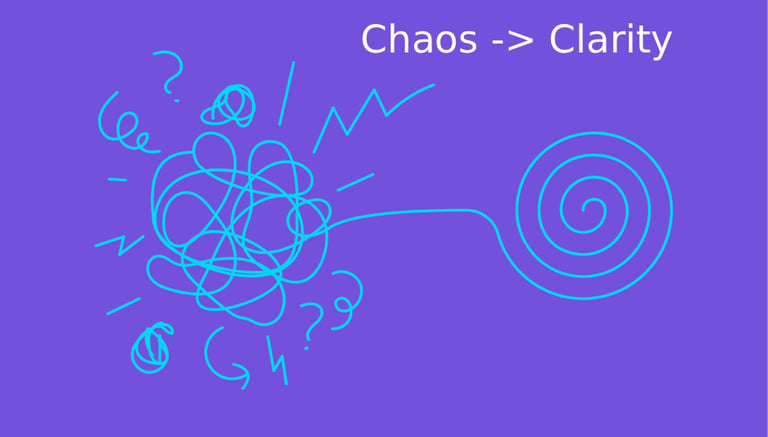From Chaos to Clarity
Why Growth-Stage Companies Need 21-Day Transformations, Not 6-Month Overhauls
8/21/20253 min read


The brutal irony of rapid business growth is becoming increasingly clear: companies that achieve explosive revenue growth often find themselves drowning in their own success. While traditional consulting approaches promise comprehensive solutions over extended timelines, growth-stage companies are discovering that survival depends on speed, not perfection.
The Growth Paradox: Success That Suffocates
Picture this scenario: Your startup has achieved the dream metric - revenue up 300% in 18 months. Investors are pleased, the market is responding, and expansion opportunities are endless. Yet behind the impressive numbers lies a different reality: team productivity has plummeted 40%, and leadership spends 80% of their time firefighting instead of strategizing.
This phenomenon, increasingly recognized as "operational fog," has become the silent killer of scale-up momentum. It manifests through fragmented workflows, unclear ownership structures, and constant decision delays that transform agile startups into bureaucratic nightmares.
Recognizing Operational Fog
The symptoms are unmistakable and surprisingly consistent across industries:
Communication overload: Teams report receiving 47 Slack notifications daily per person, creating constant interruption cycles
Meeting fatigue: Hours spent in discussions that produce no actionable outcomes
Priority paralysis: When everything is marked urgent, nothing receives proper attention
Reactive leadership: Executives trapped in firefighting mode, unable to focus on strategic initiatives
Accountability vacuum: Clear ownership becomes an elusive concept as responsibilities blur across expanding teams
The Traditional Solution Problem
Faced with operational chaos, most growth-stage CEOs turn to established consulting firms promising comprehensive 6-12 month transformation programs. The logic seems sound: hire experts, conduct thorough analysis, develop detailed implementation plans, and systematically overhaul operations.
However, this approach fundamentally misunderstands the nature of rapidly growing businesses. By month six of a traditional consulting engagement, the company has typically evolved so significantly that the original analysis and recommendations are largely obsolete. Growth companies operate in hyper-dynamic environments where waiting 90 days for clarity-let alone 12 months, can mean losing competitive advantage or missing critical market opportunities.
Leveraging SME Superpowers
Small and medium enterprises possess three distinct advantages over large corporations that smart leaders are learning to exploit:
Lightning-Fast Decision Making: Without layers of bureaucracy, growth-stage companies can implement changes within days rather than quarters. This agility becomes a competitive weapon when properly channeled.
Cultural Adaptability: Smaller teams can pivot quickly when they understand the value proposition. Unlike enterprise environments, where change management requires extensive buy-in processes, growth companies can achieve cultural shifts through direct leadership influence and clear communication.
Resource-Driven Focus: Limited resources naturally create prioritization discipline. While this constraint initially appears limiting, it actually enables more targeted and impactful interventions than the comprehensive approaches large organizations pursue.
The 21-Day Transformation Framework
Rather than extensive overhauls, successful growth leaders are adopting rapid transformation cycles that work with, rather than against, their operational tempo:
Week 1: Diagnostic Focus - Identify the 20% of processes creating 80% of operational chaos. This involves data-driven analysis of time drains, communication bottlenecks, and decision delays, but compressed into days rather than weeks.
Week 2: Rapid Iteration - Implement solutions using quick experimentation cycles. Instead of perfect solutions, teams deploy "good enough" fixes that can be refined based on immediate feedback.
Week 3: System Optimization - Build self-improving processes that adapt automatically to changing conditions. This includes creating feedback loops and measurement systems that enable continuous refinement without constant leadership intervention.
Measurable Results in Real Time
The transformation from chaos to clarity produces quantifiable improvements that validate the approach:
Companies report 65% fewer daily interruptions for leadership teams and 40% more time allocated to strategic activities. Meeting efficiency improves dramatically - six-hour decision sessions compress into 90-minute focused discussions with clear outcomes and assigned accountability.
The competitive advantage becomes immediately apparent: while competitors spend quarters planning comprehensive changes, nimble organizations are already executing their next improvement cycle.
The Speed-Over-Perfection Philosophy
This approach represents a fundamental philosophical shift from traditional organizational development. Instead of pursuing comprehensive solutions that require extensive planning and coordination, growth-stage companies succeed by embracing imperfect action over perfect inaction.
The key insight is that operational chaos demands immediate response, not eventual perfection. In rapidly growing environments, a solution implemented today and refined next week delivers more value than a perfect solution deployed next quarter.
Looking Forward
As the business landscape continues accelerating, the ability to rapidly diagnose and address operational challenges becomes increasingly valuable. Growth-stage companies that master 21-day transformation cycles develop organizational reflexes that serve them throughout their scaling journey.
The question for leadership teams isn't whether they'll face operational chaos - growth inevitably creates complexity. The question is whether they'll respond with the speed and agility their market position demands, or get trapped in the planning cycles that work for established enterprises but kill startup momentum.
For growth-stage CEOs wrestling with operational fog, the message is clear: your competitive advantage lies not in comprehensive planning, but in rapid execution and continuous refinement. The chaos of growth isn't a problem to solve once - it's a dynamic challenge requiring equally dynamic solutions.
Is your team scaling fast but executing slow?
The faster your business grows, the more critical operational clarity becomes.
Don’t wait six months to fix what’s blocking your next move.
Start your 21-day transformation with Flow Logic.
How Flow Logic Supports 21-Day Transformation
At Flow Logic, we help scaling companies move from reactivity to clarity - quickly.
Our team combines transformation expertise, intelligent workflow design, and AI-supported advisory to deliver measurable improvements in just three weeks.
Contact us directly to learn more.
